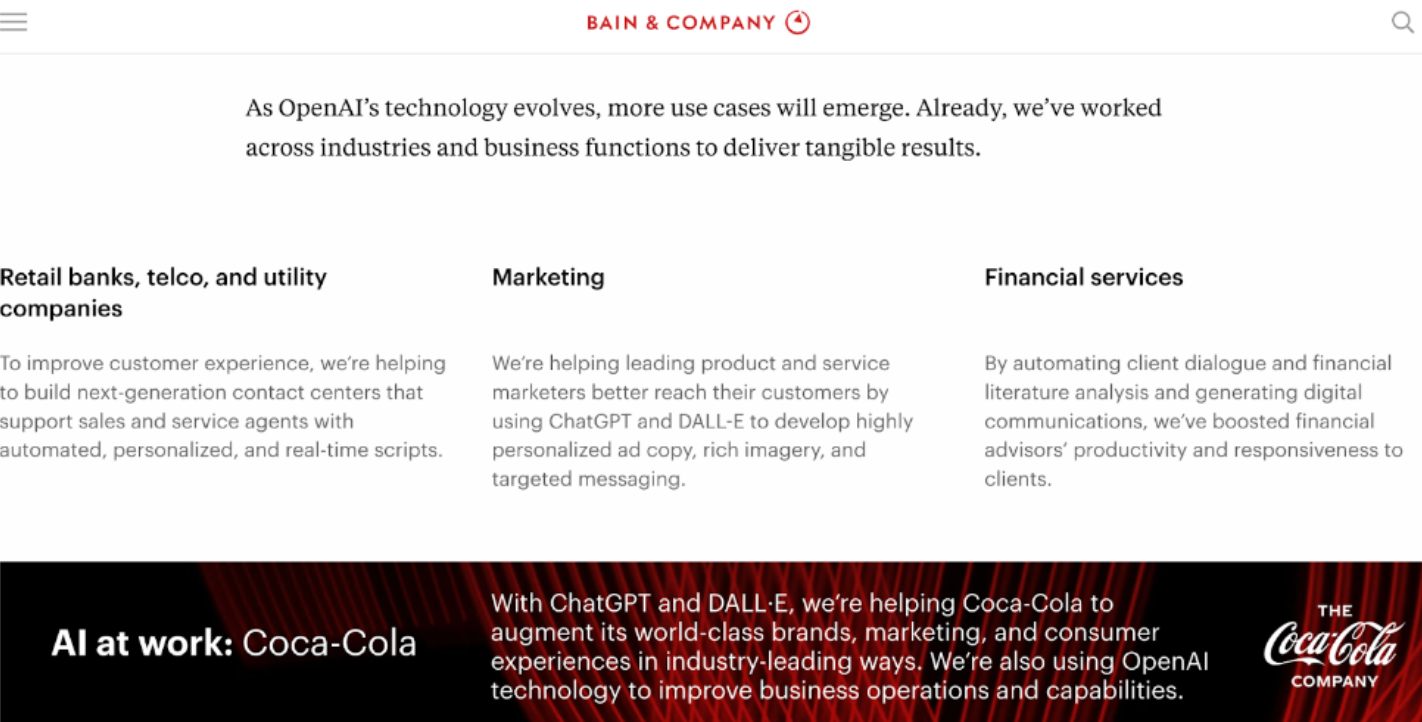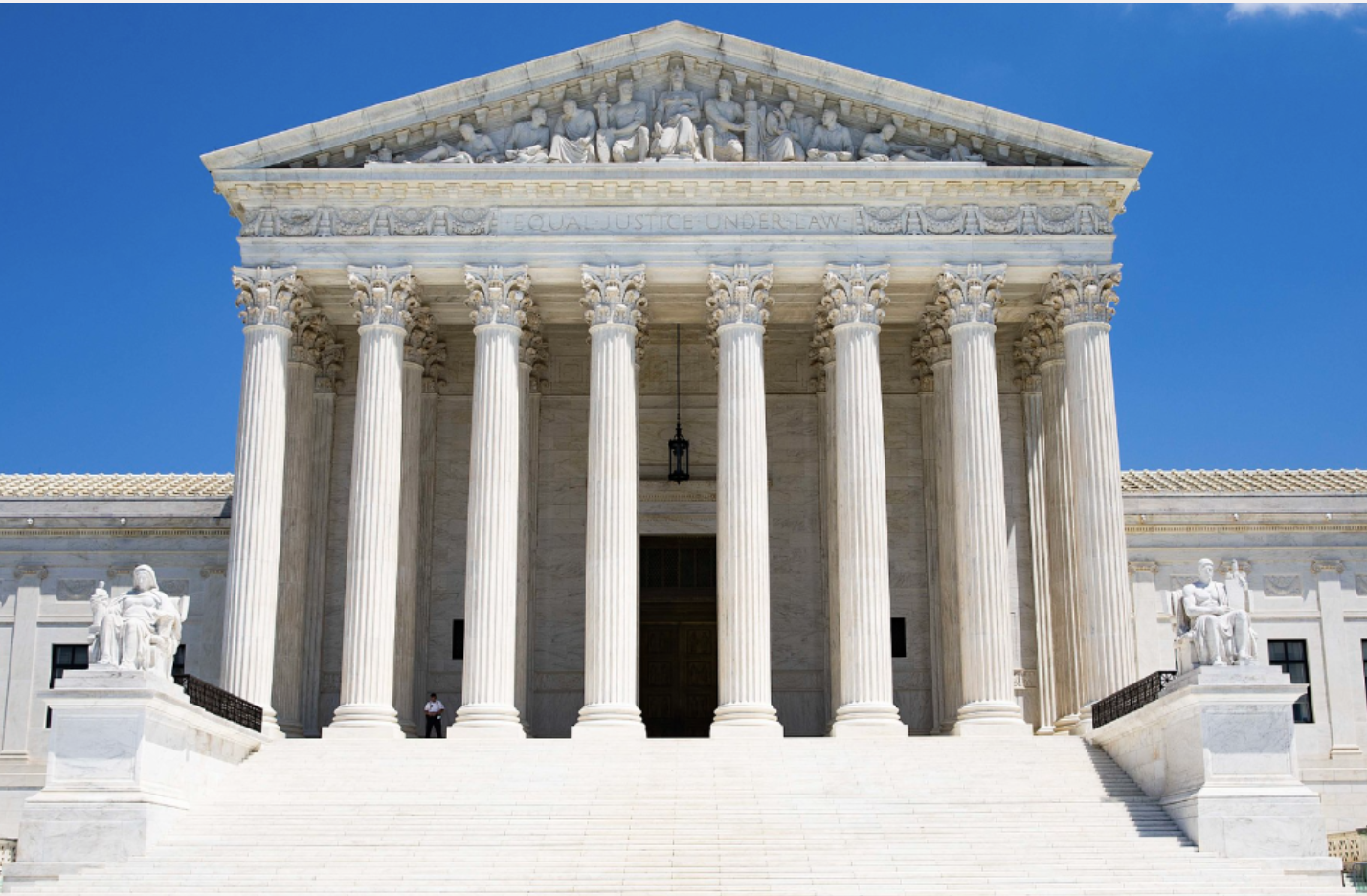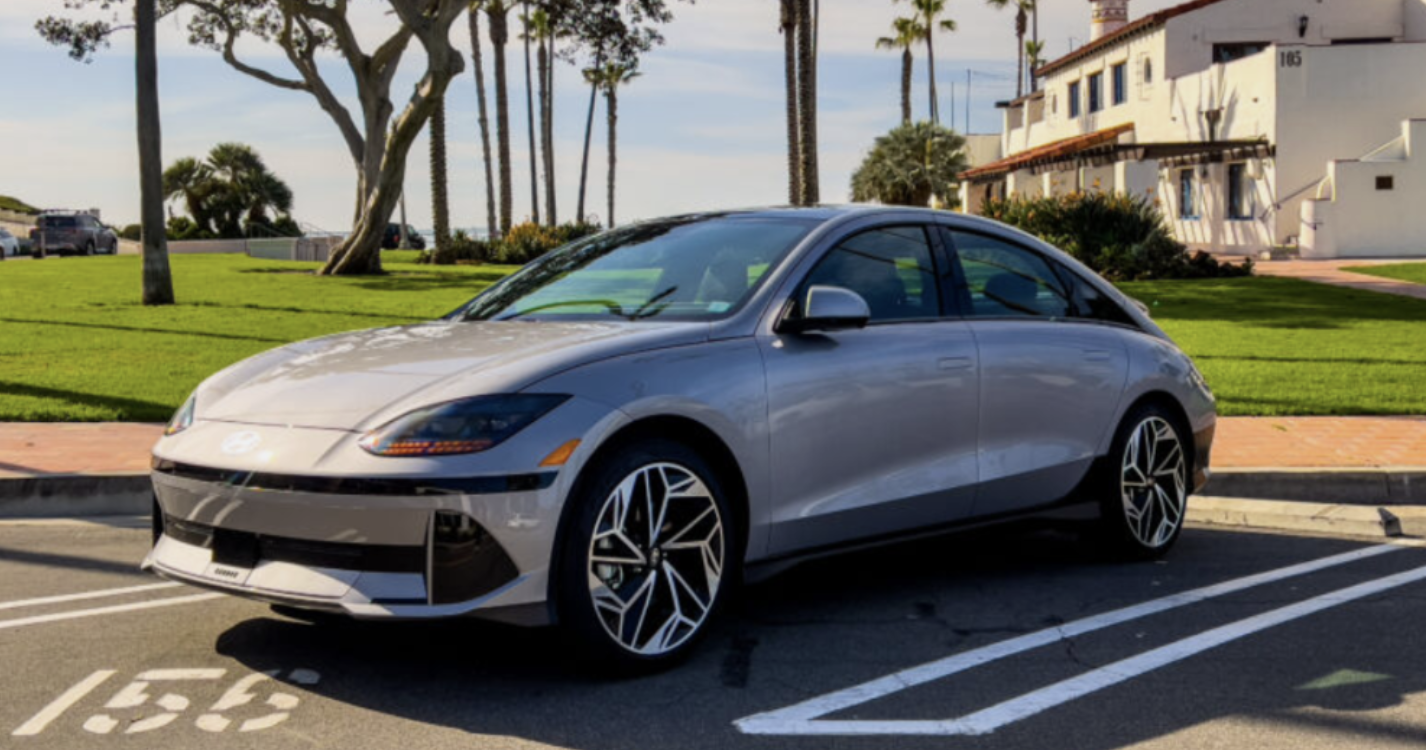
Dear Studio Fam,
This week we cover the ever increasing commercialization of OpenAI technology with news of major corporate projects involving generative AI. There's a new way to read the news from the creators of Instagram, the Supreme Court might redefine the rules of the Internet, and we link out to the best apps you'll need to use if you want to keep your Twitter account secure. Finally we cover new pricing announcements from the EV industry which have made electric cars available to even more people.
Bain Announces OpenAI Alliance and Project for Coca Cola
Few technologies have been so quickly commercialized as OpenAI’s suite of generative AI tools. Previously we reported on the integration of OpenAI into consumer tools like Microsoft 365. This week we bring news of enterprise adoption of OpenAI frameworks led by a new alliance between OpenAI and Bain & Company.
Many predictions have been made about how generative AI tools might replace human jobs, make existing jobs more efficient, or even create new jobs. With this announcement, we get some insight into which of these predictions might come true. In addition to detailing the core industry practices it believes it can streamline with OpenAI technology, Bain announced its first OpenAI-driven campaign to assist The Coca Cola Company to integrate OpenAI technology into its business processes.

Studio Byte Of The Week
The founders of Instagram are back with a new app for reading the news, Artifact. Our formal review is coming soon, but the initial impression is underwhelming. Users select topics and are shown a feed of headlines from various sources like The New York Times and Rolling Stone. The app is supposed to learn what you like after reading 25 articles, so perhaps we’ll report an improved experience in next week’s issue.
Supreme Court and Section 230

In the early days of the web, Congress encouraged investment in the Internet by protecting companies from liability from their users’ content with Section 230 of the Communications Decency Act of 1996. So long as an Internet company took reasonable steps to remove offending content once reported, the company wouldn’t be liable if someone got hurt because of user generated content. Those rules have been the subject of numerous lawsuits, two of which were finally argued before the Supreme Court this week.
Both cases involve content posted by terrorists in the run up to deadly attacks that were algorithmically amplified by YouTube and Twitter. While the content was ultimately flagged and removed, the videos had already been seen by millions of people after being inadvertently amplified by recommendation systems. The heart of the case is whether recommending content is a distinct activity from hosting content, and if Congress intended for companies to be protected from liability under both circumstances.
While the legal implications are arcane, the political considerations are more obvious. Both political parties are critical of how tech companies use Section 230 to excuse certain behavior. Republicans generally criticize tech companies for using Section 230 to censor conservative content, while Democrats have criticized tech companies for using Section 230 to resist calls to censor alleged disinformation.
Short Bytes: New Authenticator Options for Twitter Users
Twitter is switching away from SMS verification for login security because foreign telcos cost Twitter over $60 million per year in fake text message bills. If you want to keep your Twitter account secure, be sure to start using one of these authenticator apps:
- Google Authenticator - Free and universally supported, it sometimes falls behind on updates for iOS
- Authy - Also free and universally supported, Authy is maintained by communication company Twilio
- LastPass Authenticator - Great if you already use LastPass for password management.
- Microsoft Authenticator - Great if you’re a Windows, Office, or Teams user
- Zoho OneAuth - Free and universally supported, optimized for secure access to Zoho Products
EVs Getting Even Cheaper

Every car maker in America sells a fully electric vehicle now, and there is a literal race among them to scale production. All of the legacy car makers are behind Tesla in their industrial capacity, but Hyundai is arguably in best positioned to catch Tesla as evidenced by the pricing announcement for their new Ioniq 6 sedan: exactly $1,000 less than the Tesla Model 3. While comparable EVs from other makers are $4,000 to $6,000 more, even after recent price reductions. Hyundai is also the only legacy car manufacturer to sell an EV with 350 volt charging capability (other than the $155,000 Porsche Taycan Turbo), something that Teslas don’t yet offer.

